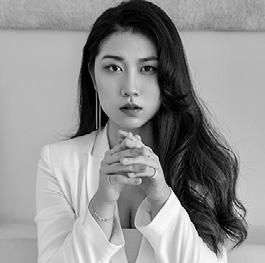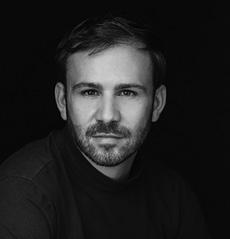
2 minute read
Letter from the Conductor
What is the “Hollywood sound” and how has it evolved over time? Film music, much like so-called classical music, was born out of a myriad of disparate cultural, geographical, and technological influences, shaped by a huge diversity of creative artists from every corner of the globe. Have you ever watched a film with the musical track removed? As an occasional conductor of films with orchestra, I have been able to use special software to do just that, and the result has always been profoundly strange. Imagine ET taking flight in a bicycle with nothing but wind and the rustling of leaves as a soundtrack. Or Marty McFly pushing the DeLorean towards 88 mph while dodging bullets in “Back to the Future” with only the screeching of tires as accompaniment. Or Rick delivering the line “Here’s looking at you, kid” without the surge of Steiner’s lush strings to accompany it. Unsatisfying, to say the least. Great film directors know that a masterful score can transform a movie. Even greater directors, like Spielberg for example, create long stretches of film in which composers can write sweeping fantasias, transporting the viewer to new lands, new emotional states of being. In the early days of cinema when the silent film ruled the day, movie theaters employed organists to accompany the action, and the soundtrack was either improvised, or included a potpourri of popular tunes from various sources. When sound became a capability, directors gravitated to the seemingly endless palette that only a full symphony orchestra could offer. Naturally, many great composers of the day were tapped to try out this new genre, and many did so happily––composers such as Prokofiev and Shostakovich created the sound of war, Aaron Copland created the sound of the American West, Korngold became a favorite scorer of sweeping historical dramas––and the leading sound of the day was Romantic with a capital “R”. This Romantic sound can be directly traced to another capital “R”––Rachmaninoff. While not a film composer himself, Sergei Rachmaninoff’s sweeping orchestral range, his rich and unending melodic style, and his masterful use of color and mood inspired a generation of film composers. Film, by its nature, is international. One cannot ignore the influence of French cinema in the 60s and 70s, the sprawling world of Indian Bollywood, or early masters like Tarkovsky of Russia or Kurosawa of Japan on the styles of modern film today. Film music has also evolved into a staggering array of diversity––and has also moved away from exclusively orchestral scores towards an “anything goes” approach, with each original score creating a new sound world to fit the unique style of each film. This program represents a small slice of that diversity––from Japan’s beloved Joe Hisaishi to the still-terrifying Psycho score by Bernard Herrmann, from the Romantic-inspired sweeping melodies of Casablanca to the classic Italian sound of The Godfather––we’ll get a taste of some of film music’s most quintessential composers, all centered around the Romantic master himself, Sergei Rachmaninoff, with one of his most beloved compositions, the Second Piano Concerto. You may not be able to buy popcorn this time, but I invite you to sit back, relax, and let your imagination guide you as we explore Rachmaninoff and the Hollywood sound.
Enjoy the performance! Andrew Crust
Advertisement






